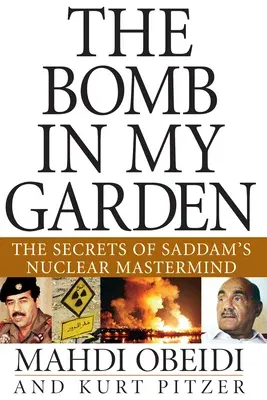No one knows more about Iraq's nuclear weapons program than Mahdi
Obeidi, the man who headed its successful uranium enrichment effort. In
the immediate, chaotic aftermath of the 2003 war in Iraq, Obeidi
contacted the arms inspectors he had been forced to lie to for so many
years, and voluntarily turned over the key plans and parts to U.S.
intelligence. Among the revelations reported by the international media
at the time: In the early 1990s, under orders to hide the core of the
program from UN weapons inspectors, Obeidi had buried in his backyard
garden the critical elements necessary to build uranium-enriching gas
centrifuges. What he turned over to U.S. intelligence in the summer of
2003 proved to be the entire remains of a program put on hold since the
last Gulf War. Now, at last, Obeidi tells all, taking us inside Saddam's
regime and revealing the truth about its quest for nuclear weapons. He
captures in nail-biting detail what life was like directly under
Saddam's watchful eye--the intimidation, the paranoia, the impossible
deadlines.
In The Bomb in My Garden, Dr. Obeidi reveals how he circumvented the
international safeguards specifically intended to bar developing nations
from obtaining the knowledge and materials needed to build nuclear
weapons. He recounts his many "shopping trips" abroad, during which he
inveigled, bribed, and cajoled scientists and engineers at companies
throughout the United States and Europe into assisting him. And he
details the complex system of front companies and financial institutions
he used to pull it all off.
Dr. Obeidi also provides an intimate portrait of unrealized promise and
a nation's decline into madness. In relating his transformation from an
idealistic young engineer into a tyrant's reluctant cat's-paw, Dr.
Obeidi offers a rare glimpse into the workings of Saddam's inner circle.
In chilling detail, he describes the fever dream of intimidation,
paranoia, and absurd demands that characterized his years under the
thumb of Saddam's sociopathic son-in-law Hussein Kamel. And he describes
the bittersweet sense of triumph he and his team experienced on
achieving in a matter of months what, by all objective standards, was a
technical near-impossibility.
Written with the pace and drama of a spy thriller, this eye-opening
account will serve as a cautionary tale about the dangers of nuclear
proliferation. At the same time, it provides a powerful reminder of how
what is best in a nation and its citizens can become hopelessly
perverted when the reins of power are left too long in the hands of
self-serving and unscrupulous leaders.

